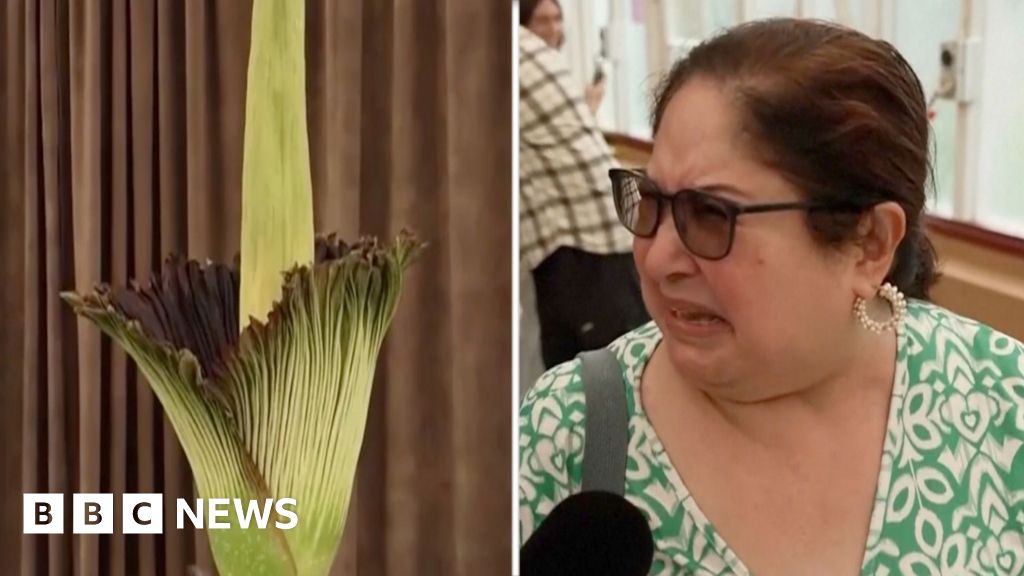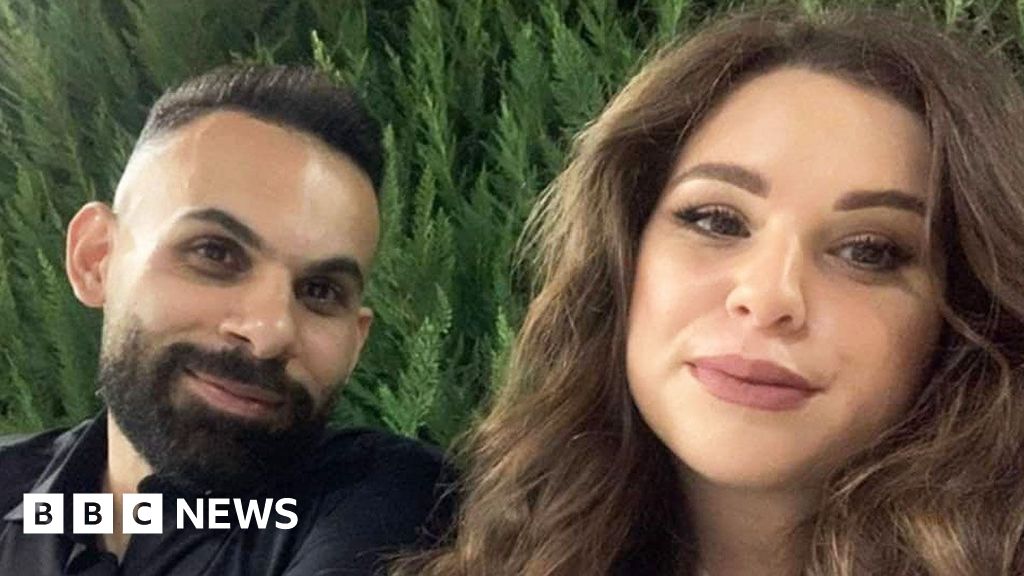ARTICLE AD BOX
By Matt Murphy
BBC News
Watch: 'Russia! Russia!' - chants end Putin's speech
Russia has formally annexed four occupied regions of Ukraine, in a move sparking international condemnation.
President Vladimir Putin signed "accession treaties" with the regions' Moscow-installed leaders at a ceremony in the Kremlin's opulent St George's Hall on Friday.
Watched by members of the political elite, he declared the regions would "forever" be part of Russia.
Kyiv reacted by launching a new, fast-track bid to join the Nato alliance.
Flanked by his prime minister and the speaker of parliament, Ukrainian President Volodymyr Zelensky said Ukraine had long been a "de-facto" member of the security bloc, and accused Moscow of redrawing borders "using murder, blackmail, mistreatment and lies".
"We are taking our decisive step by signing Ukraine's application for accelerated accession to Nato," Mr Zelensky said, speaking from the centre of Kyiv.
Nato Secretary-General Jens Stoltenberg was reluctant to be drawn on the bid, saying the decision rested with the bloc's 30 members. But he condemned Moscow's annexation of Ukrainian territory, calling the move "the most serious escalation since the start of the war".
US President Joe Biden also accused Mr Putin of a "fraudulent attempt" to claim Ukrainian territory, and said the move was "trampling on the United Nations Charter, and showing its contempt for peaceful nations everywhere".
"The illegal annexation proclaimed by Putin won't change anything," EU Commission President Ursula von der Leyen said. "All territories illegally occupied by Russian invaders are Ukrainian land and will always be part of this sovereign nation."
And French President Emmanuel Macron pledged to "stand by Ukraine in order to deal with Russian aggression and to enable Ukraine to recover its full sovereignty across its entire territory".
Image source, Getty Images
Image caption,Vladimir Putin speaks to crowds in Moscow, with the words "Together forever" at the top of the screen.
But Mr Putin has long been unmoved by Western criticism of his war in Ukraine, and during a rambling 37-minute long speech he promised to "protect" the newly annexed regions "with all the forces and means at our disposal".
He claimed citizens in Kherson, Zaporizhzhia, Luhansk and Donetsk had voted to be "with their people, their motherland".
"The people have made their choice," Mr Putin said. "This is the will of millions of people."
He was referring to self-styled referendums held in the regions in recent days, but Ukraine and Western governments have condemned the votes as a sham.
In his pledge, the Russian leader seemingly returned to his vague threats to use nuclear weapons, accusing the US of creating a "precedent" when it bombed the Japanese cities of Nagasaki and Hiroshima at the end of World War Two in 1945.
The ceremony concluded with the leaders of the four annexed regions joining Mr Putin to sign "decrees", before they joined hands and led the assembled crowd in chants of "Russia, Russia".
Russian media had billed the event as historic, but Mr Putin's speech gave little new detail on the extent of the territory Russia is claiming.
Ukraine has retained control of large chunks of Zaporizhzhia and Donetsk regions throughout the war, and retaken significant amounts of territory in recent weeks.
Instead, the 69-year-old Russian president largely focused on a list of perceived injustices in which he accused the West of "colonialism", before pivoting to a homophobic attack on "satanic" leaders.
As Mr Putin spoke in Moscow, 750km (466 miles) to the south his forces were being surrounded by Ukrainian troops in Lyman, a strategically important town in the eastern province of Donetsk - one of four regions annexed by Russia.
The town has served as a supply and logistics hub for Russian forces in the region, and it is believed that between 3,000 - 5,000 troops are trapped in the near encirclement.
Anton Herashchenko, an adviser to Ukraine's interior ministry, wrote that "Ukrainian forces are attacking the occupiers from three directions and their situation is 'incredibly complicated'".
Denis Pushilin, the leader of the newly annexed Donetsk People's Republic, admitted that Lyman was "partially surrounded" and that two nearby villages were "not fully under our control".
Ukraine's military has been keen to conceal the pace of its troops' advance in the area, but one video on social media appeared to show Kyiv's forces in the centre of Yampil, just 16km (9 miles) south-east of Lyman.
And late on Friday night, Kyiv's defence ministry said it had taken the village of Drobysheve, 8 km (4 miles) north-west of Lyman.
Western nations were quick to react to Friday's annexation, with a host of new sanctions announced on Friday afternoon.
The US targeted Russia's Central Bank Governor Elvira Nabiullina, with Treasury Department officials accusing her of being pivotal to moves to protect Russia's economy. More than 1,000 other companies, politicians and businesspeople were also targeted.
The UK banned the export to Russia of almost 700 goods that are critical to manufacturing production.
And the EU Commission unveiled proposals to impose a cap on the price of Russian seaborne oil, while also imposing a ban on EU citizens serving on the boards of Russian companies.
Back in Moscow, Mr Putin and his separatist allies attended an evening pop concert in the city's Red Square.
The Russian president led cheers for the four annexed regions and joined the crowd in a rendition of the national anthem. "Victory will be ours," he said.
Thousands of people packed into the event, with many clutching Russian flags, though the BBC's Will Vernon in Moscow says many of those in attendance said they had been brought on buses as organised groups.
And late on Friday night, Russia vetoed a UN security council resolution which would have condemned its annexation of the four occupied regions. Moscow's Ambassador Vasily Nebenzia complained that it was unprecedented to seek the condemnation of a permanent member of the body.
While the Kremlin's blocking of the motion was anticipated, both India and China abstained.

 2 years ago
28
2 years ago
28








 English (US) ·
English (US) ·